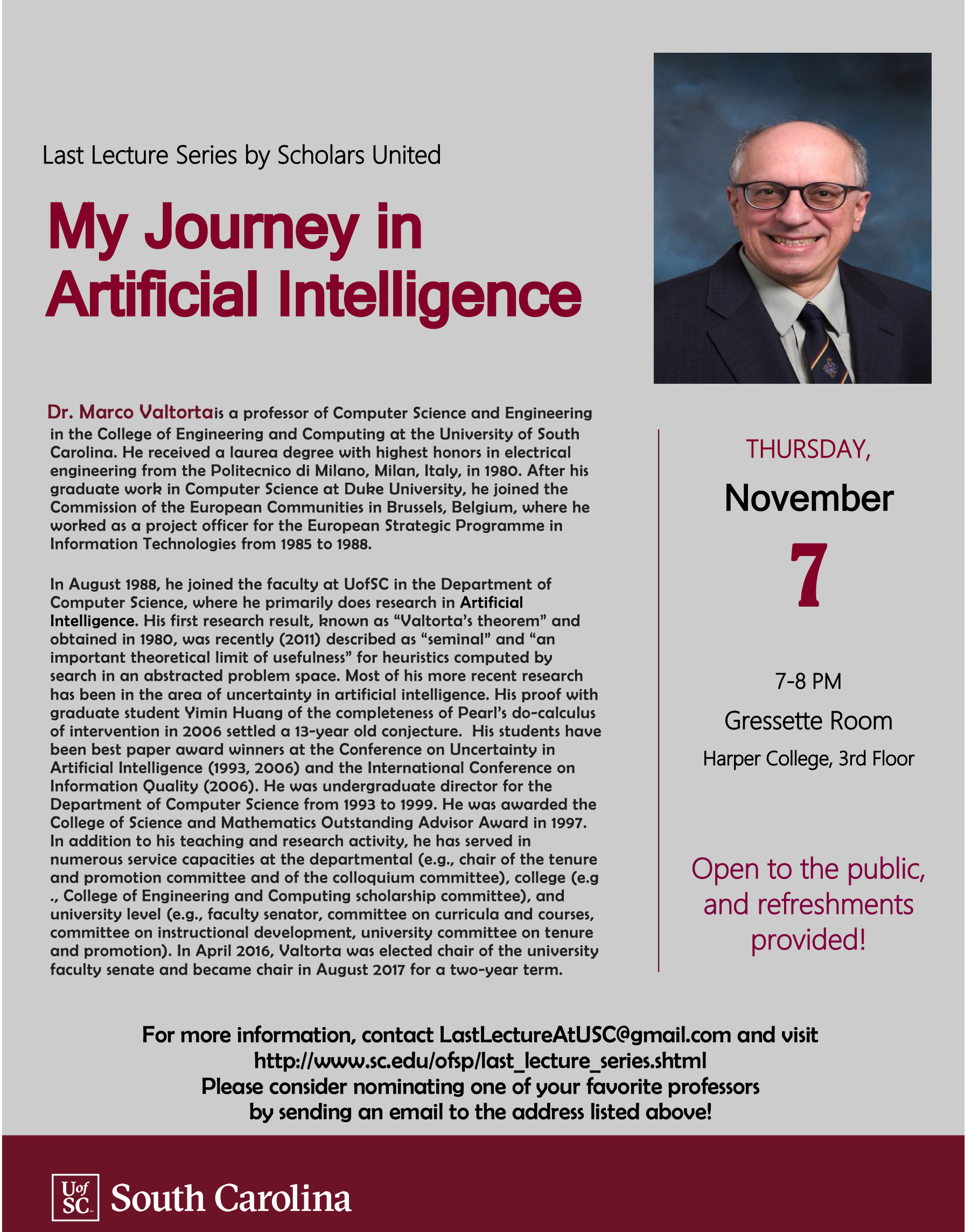Question Answering on Linked Open Data: Past, Present, and Future
- 13 views
Friday, February 21, 2020 - 10:15 am
Innovation Center, Room 2277
Speaker: Dr. Saeedeh Shekarpour
Affiliation: University of Dayton
Location: Innovation Center, Room 2277
Time: Friday 02/21/2020 (10:15 - 11:15am)
Question Answering (QA) systems are becoming an inspiring model for the future of search engines. While, recently, datasets underlying QA systems have been promoted from unstructured datasets to structured datasets with semantically highly enriched metadata, question answering systems are still facing serious challenges and are therefore not meeting users’ expectations. Especially, question answering over interlinked data sources is raising new challenges due to two inherent characteristics. First, different datasets employ heterogeneous schemas and each one may only contain a part of the answer to a certain question. Second, constructing a federated formal query across different datasets requires exploiting links between them on both the schema and instance levels. This talk will be conducted in the three following directions:
- SINA strategies for addressing the salient challenges of QA systems [1,2,3]
- Re-engineering Question Answering Systems [4,5,6]
- A look to the future
